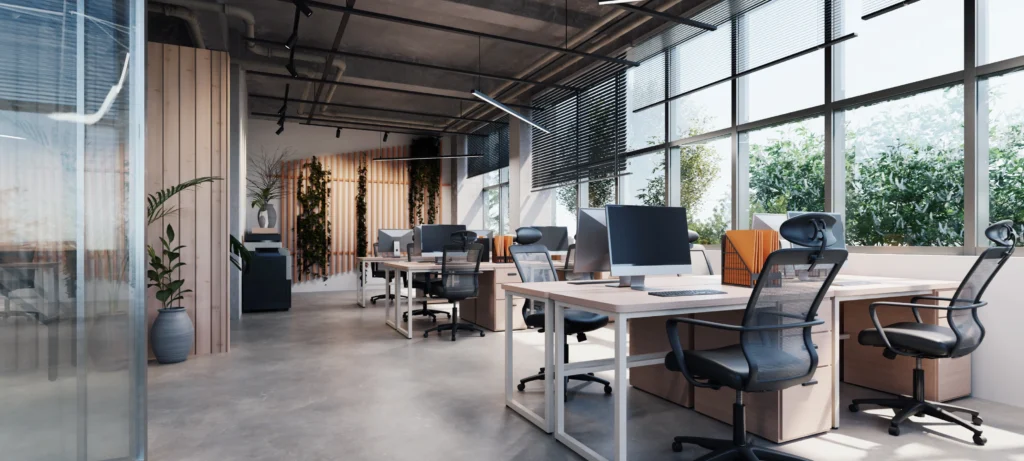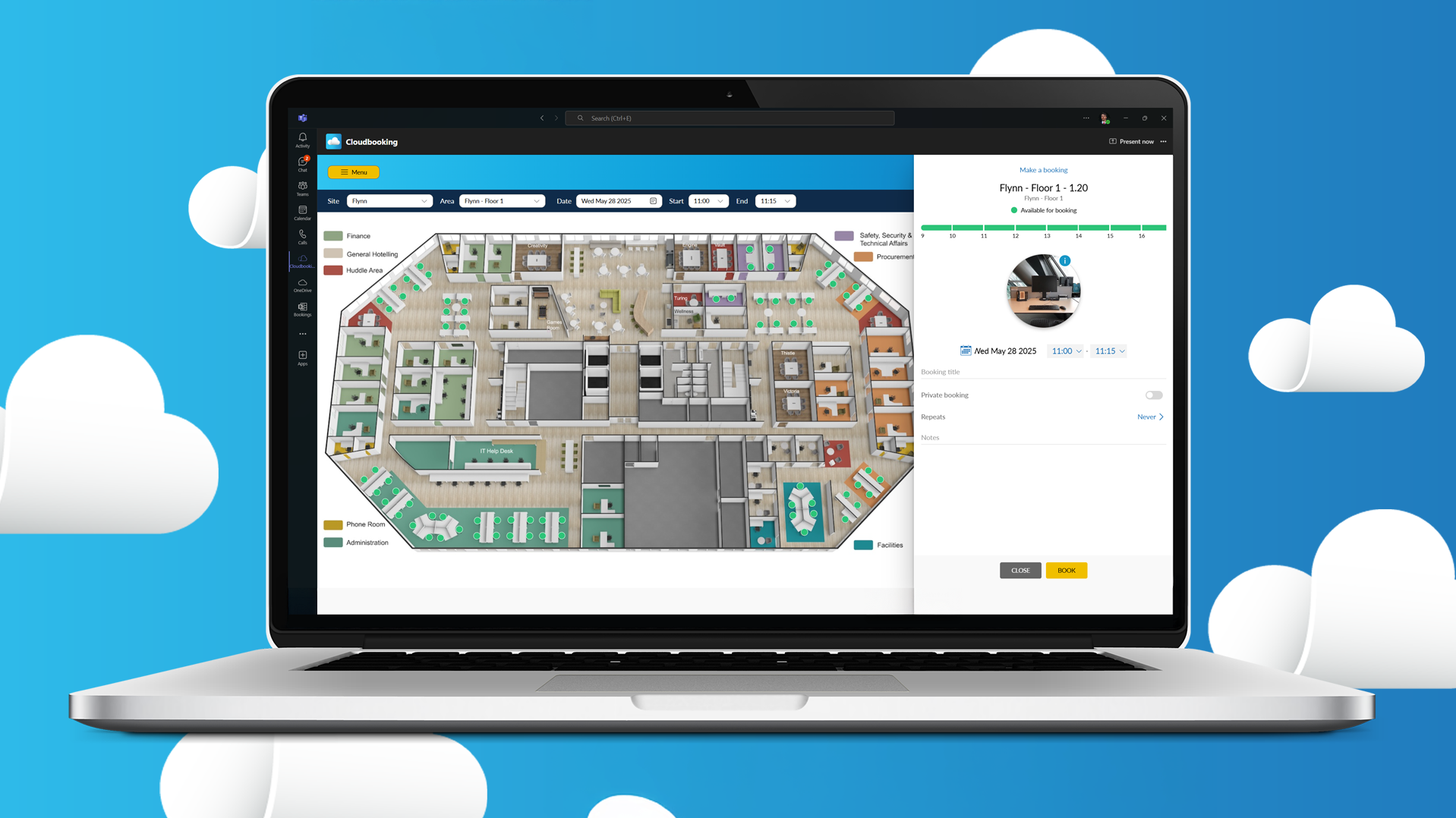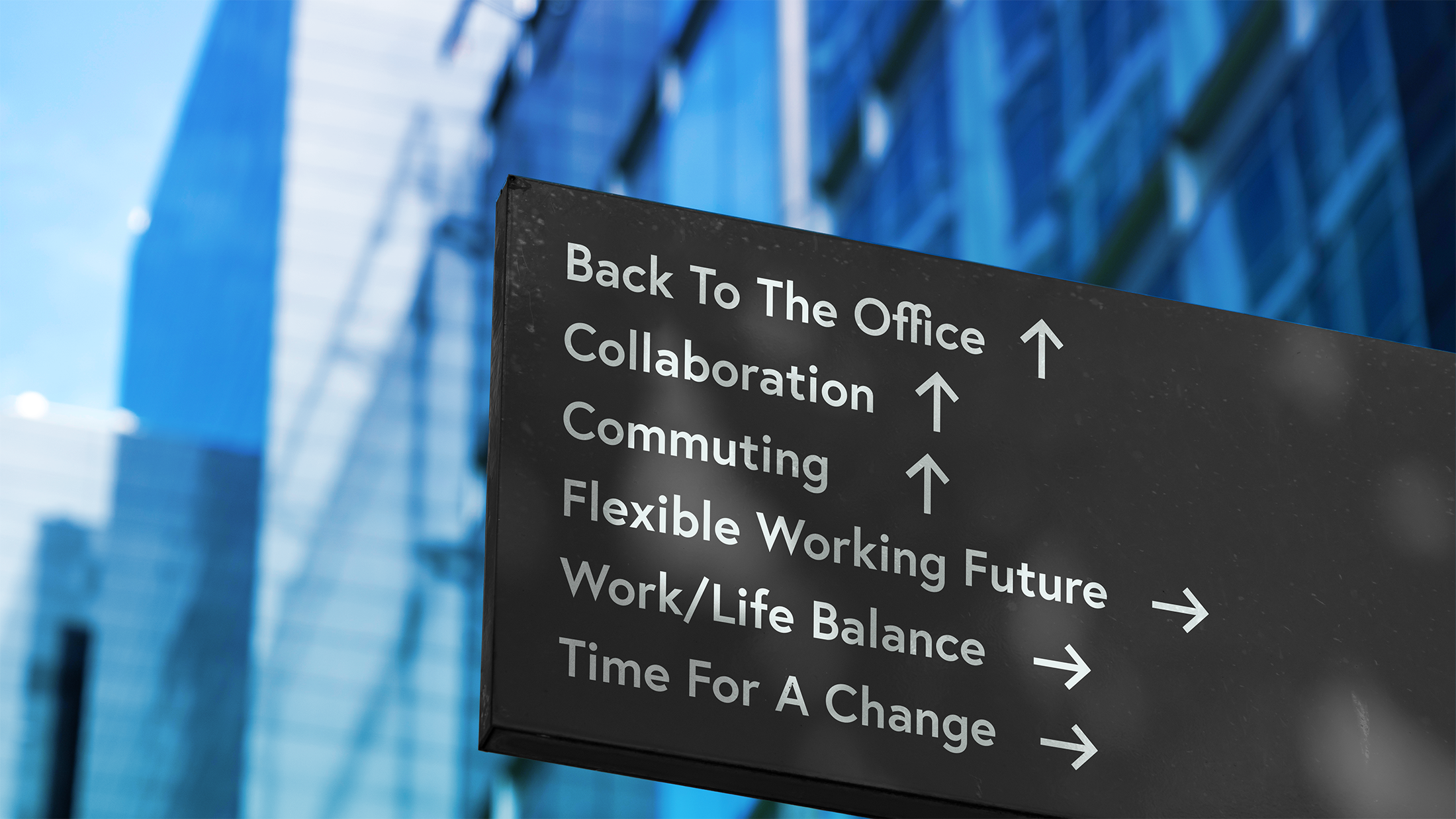
The global shift towards remote work sparked a debate about the future of work. Although many people have ideas about that future, no one has definitively answered the question – “What and where, exactly, do we return to?”
Remote working and hybrid working clearly have benefits. Those in favour cite added flexibility for employees and cost-savings for employers, particularly employers who no longer need the significant overheads that come with a large corporate real estate portfolio.
But there are downsides as well. A survey of 61,000 employees by Microsoft suggested that working from home made it difficult for different teams to collaborate1. For employees themselves, there is a significant split between those who report having a better work-life balance and those who believe it’s almost impossible to switch off.
For this reason, many businesses seem to have settled on a “hybrid future”. 58% of UK workers would prefer a hybrid role2, and 81% of Gen-Z workers report that they would feel isolated without time in the office3.
But with all the “hybrid hype”, it’s easy to forget that there are some roles that just can’t be done remotely – healthcare and education being two obvious examples. It’s also important to recognise that certain tasks that can be done remotely are better done face-to-face, such as planning meetings and brainstorming sessions.
Businesses of all kinds need to find solutions that work for them and their employees, and invest in systems, technology and processes that enable effective collaboration. Let’s dive in.
Suggested Reading: If you want to learn about how these changes are impacting younger employees, check out our article – Gen Z and The Future of Work: Embracing Diversity and Innovation.
Will there be a return to the workplace for all of us?
Based on our experience, the straightforward answer to this question is “yes”, but not in the traditional sense that most of us have previously experienced in our working lives.
The future of work is not about returning to “The Office”. To understand that future, it’s important to look at the evolving concept of the office itself, and the role of technology in shaping it.
“The office” vs “an office”
The traditional 9-5 office-based role was based on workers who clocked in at 9, worked until 5 and left the workplace. Today’s workplace is a long way from that model. Even before the rise of home or hybrid working, open-plan offices, breakout zones, hot-desking and collaborative meeting rooms were becoming the norm. The traditional office has given way to the dynamic workplace, where productivity and collaboration are encouraged under a more flexible arrangement.
A modern office encompasses a more fluid concept, which combines a variety of different workplace environments into one cohesive workplace. If your employees are productive, does it matter where they are physically located? The answer to this is “sometimes” and therein lies the problem.
While coworking spaces provide options for smaller businesses, they do little for an organisation with multiple sites and an extensive workforce. Larger organisations require dedicated spaces for a future of work strategy that provides the right support for their teams; remote, hybrid or otherwise, and that will give them a competitive edge. Here, they can promote the culture of the company and facilitate the collaboration and productivity they are striving for.
Is the future of work hybrid?
For many businesses, the solution is hybrid. This combines the best of both worlds offering remote work, in-office work and collaborative spaces which allow for virtual or in-person connections with those based in the office and not. We can see this trend play out in travel stats and the popularity of Tuesday, Wednesday and Thursday as “in-office days” for most hybrid workers4.
Whilst convenient, working from home doesn’t offer the same ability to truly collaborate with colleagues. And let’s not forget, being physically present in the workplace can enhance career prospects for employees, allowing them to effectively learn from more experienced workers, ask questions and get immediate advice. It can also help people learn both technical skills and soft skills, such as listening, trust building and conflict management.
But flexible working models are not without challenges. For example, do all employees actually want to spend time in the workplace? Businesses keen to retain employees who want to remain working from home may find themselves facing tough decisions on whether staff turnover or flexibility is more important to them.
There is also the question of whether an employer insisting on a return to the office could detrimentally impact the mental health and well-being of employees. Add to this the extra costs employees will face to return to the office, and even the most robust HR managers will have a fair amount to overcome.
Managing space in a hybrid workplace
An effective hybrid working environment requires careful planning and management. This is particularly true for large organisations with multiple locations. Meeting rooms, desks and car parking spaces will likely see an influx of demand in busy periods, but empty spaces at others.
Managing building access is yet another concern. For example, there is nothing that slows down productivity more than a long queue at reception to access a booked meeting room. Yet, from a security and fire safety perspective, you cannot allow people to walk in and out of the building at will. You need to allow easy access to those who are authorised to be in the building and be able to respond to changes in footfall within the premises.
Thankfully, intelligent workspace management technologies can provide just that. Technology solutions such as Cloudbooking’s advanced meeting room and desk booking system support the efficient use of the hybrid workplace. Our software simplifies the process of booking space remotely by providing 3D floor plans, desk type configurations, and updating calendars. Plus, it’s fully customisable for routine changes and to evolve as the future workplace evolves.
Bringing location flexibility to Experian
Cloudbooking has been an invaluable partner in helping us deliver our global future of work programme, their desk booking tool has been instrumental in allowing us to flex our space whilst ensuring staff can find a desk when they come into the office.
Technology to enhance the hybrid workplace
Technology is critical to effective hybrid working. However, care needs to be taken to ensure that it aids productivity, rather than hinder it. Answers are not as simple as setting up an MS Teams account or collaborating via Zoom or Google Meet.
Not only must it embrace the complexities of teams who work from different time zones and places, but it will also need to focus on a central hub; a hub where people physically meet, connect, and collaborate, i.e. the “Smart Office”.
Proper analysis will need to be undertaken to understand and meet the hybrid workforce’s needs, for instance:
- How many days will teams be in the office?
- What areas will they need to work in?
- Will fixed desks or a hot-desking environment work best?
- How much space is needed?
- What’s the most efficient meeting room configuration and size?
The busiest times within the office will need to be managed carefully to avoid bottlenecks at access points that disrupt the flow of business.
Technology can bridge the gap between different working requirements, but only if it’s carefully planned and configured.
The basic aims of hybrid workplace technology
Enable collaboration and productivity
Using tools that make it easier for employees to connect will allow them to work together efficiently regardless of their location. People should be able to be present at meetings physically and remotely. There are plenty of platforms that allow this but it is the training provided and the implementation that will really make the difference.
Simple to use
Platforms that, for example, simplify the booking of meeting rooms or desks, manage the access of company resources, and the ability to meet virtually and in person can only be a bonus for a flexible workspace. Examples of such technology that could assist in the hybrid office would be a visitor management system, desk booking system and meeting room booking software. Such technology can also help inform the movement of a hybrid workforce, by analysing the efficiency of the spaces to allow businesses to better make use of their resources.
Portable
In a flexible working environment, as well as one focused on data security, the standalone PC may not be the best option. For those hotdesking, or working within a hybrid role, having portability in the technology they use will be vital in allowing them to work seamlessly within different environments. With many businesses preferring to work in the cloud, business owners could reduce their reliance on fixed in-office assets, reducing the risk of unauthorised access, and improving the flexible nature of the office.
Final thoughts…
The importance of inclusivity & well-being
It is vital that no employee should feel disadvantaged by the way in which they carry out their work. The workplace can support a sense of community for everyone and ensure employee well-being both in terms of physical health and mental health. Therefore, it is an organisation’s responsibility to consider these aspects of any new work model, and ensure that measures such as regular catch-ups, virtual team meetings, and equitable access to resources and opportunities are easily available to all.
Questions of sustainability
In terms of environmental sustainability, many businesses are already working on plans to incorporate sustainability. Smart lighting and heating are obvious basic requirements so that lighting and heating are automatically turned off when meeting rooms or entire offices are empty. However, sustainability does not just mean meeting environmental goals in terms of reducing carbon footprint. It is also necessary to improve the sustainability of a business with regard to future employees.
The values of a typical Gen-Z employee are more climate-focused, and they also expect a better work/life balance than older generations expected at the same point in their careers. Employers looking at both ends of this spectrum will be able to not only appeal to employees’ preferred ways of working but also be able to demonstrate that they take their environmental responsibilities seriously, which will appeal to the next generation of employees.
A positive impact on productivity
Analysis already shows a positive impact for employers who adopt more flexible working patterns. In Q2 2023, for example, companies with fully structured hybrid policies grew their headcount by around 1.5% on average5. Companies with fully flexible or hybrid working policies saw growth of 4.1% in the year to July 2023 compared to full-time in-office organisations which grew by only 2.6%. This data was consistent across various sizes of businesses. This defies the perception of some that hybrid working hampers productivity.
Need to manage a hybrid workplace?
At Cloudbooking, we’re already ahead of the curve when it comes to managing a hybrid workplace effectively. With our innovative visitor management systems, you’ll be able to easily keep track of who is in your office and when.
Not only this, but the analytics that can be gained from our innovative systems will ensure you make better use of your workspace, allowing you to effectively book out meeting rooms when teams are in the office, based on the size of the team, switch off electricity to rooms that aren’t being used, and provide better security and safety for your employees and the valuable data you have on site.
To learn more about how we can help your business harness innovative tech to ensure your workplace is as flexible as it can be, why not get in touch? We’d be happy to discuss the solutions that could help to futureproof your business in an ever-evolving landscape.
1 Yang, L., Holtz, D., Jaffe, S. et al. The effects of remote work on collaboration among information workers. Nat Hum Behav 6, 43–54 (2022).
2 How the COVID-19 Pandemic Changed the Way We Work: Key 2022 Work-From-Home Statistics – Credit Summit
3 https://hrnews.co.uk/survey-reveals-81-of-younger-workers-fear-loneliness-from-long-term-home-working/
4 Overview – Travel in London report 15
5 Remote And Hybrid Workplaces Are Hiring People Twice As Fast As Full-Time Office Employers: Report


